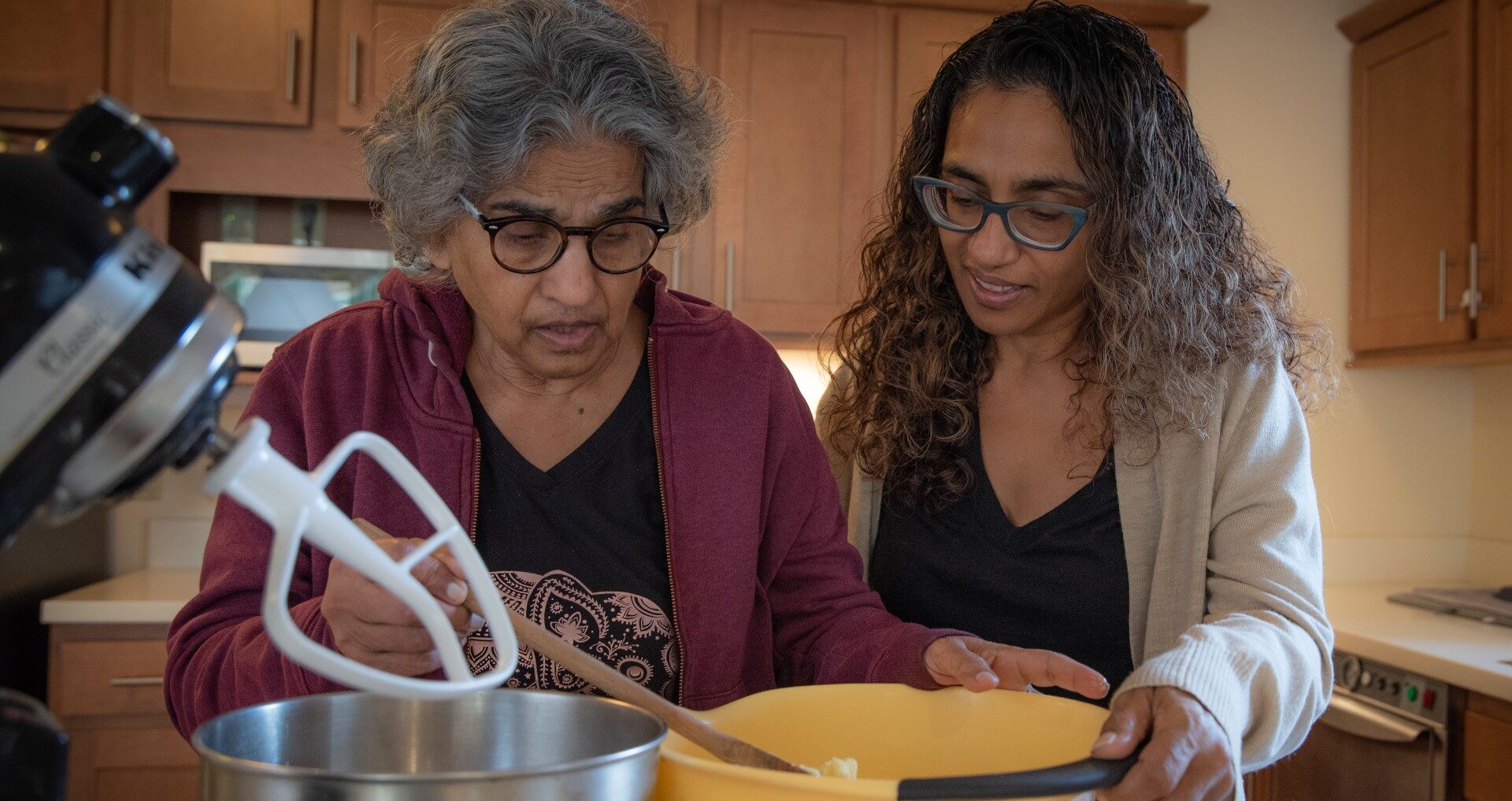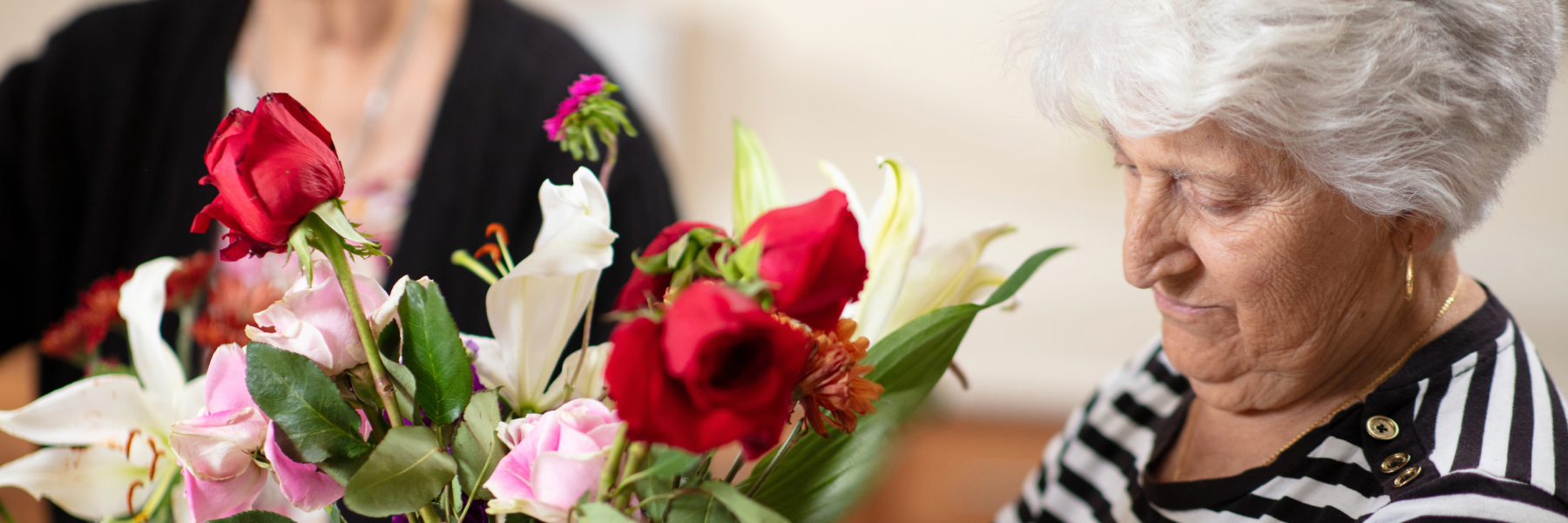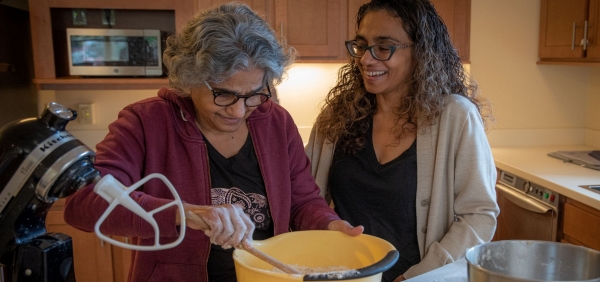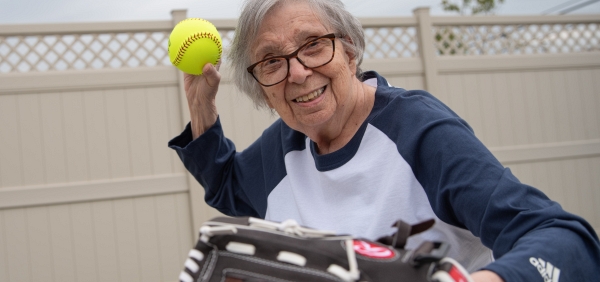Why Caregivers Feel Guilty

While being a family caregiver for a loved one with dementia can be very rewarding, it can also be emotionally challenging. It’s only natural to start thinking about “should haves,” “could haves” and “would haves,” in regards to your loved one. You could even feel anger at the situation you’ve found yourself in, frustration about what you can’t control and caregiver guilt because you should be more caring, selfless and giving.
Reasons for Caregiver Guilt
Your emotions are a powerful indicator of what’s going on in your mind. If you think that the outside world dictates how you feel, you won’t feel like you have control over anything. But more often than not, you control how you feel. Not the outside world. Don’t believe it? How often have you been able to make someone happy? It’s hard to do right? You might be able to do something someone likes or enjoys, but truly making someone else happy is a tall order (and can be exhausting).
Human brains have, what psychologists call, a negativity bias. It’s easier to see what’s wrong than what’s right. Often we’re looking for things that can go wrong because that could lead to problems. There’s no need to worry or pay attention when everything is going right.
Guilt comes from how you think about a situation and not the situation itself. Not giving someone something they want doesn’t make you feel guilty. Thinking you should be able to give everyone everything they want does. Instead, we could see the positive side of not giving. Maybe they’ll appreciate what they have, or maybe they didn’t actually need it to begin with.
If a caregiver feels guilty about leaving their loved one with other family members to go see a movie, that’s about their mindset and not the event. Who knows? Your loved one may enjoy having someone new to talk to for a little while.
Dealing with Caregiver Guilt
Rather than give into feelings of guilt and creating a downward spiral, here are some suggestions to help relieve caregiver guilt:
- 1. Recognize how you feel: Once you put your negative feelings and why you feel them into words, you’ll gain a new perspective on what’s going on and be able to remind yourself of your positive feelings.
- 2. Treat yourself like a friend: We tend to be harder on ourselves about our perceived shortcomings or feelings of guilt. If you had a friend who truly shared how they felt guilty about caring for a loved one, would you be understanding and forgiving? If so, don’t you deserve the same treatment? When you’re feeling “bad” or “guilty,” tell yourself the same things you’d say to somebody you care about.
- 3. Focus on today: If you start to feel guilty and miss the person you used to know, take a deep breath and turn your attention to what you’re hearing, seeing and feeling in the world around you. Look for what you appreciate in this moment.
- 4. Remember the good times: It’s important to reflect on and cherish the good memories. Try sharing a photo album with your loved one and others and focus on the times before dementia. You can also look for a sign of your loved one’s remaining personality—perhaps a smile in hearing music—and connect with that.
- 5. Be realistic: There may be a cultural expectation that caregivers are always patient and understanding. But you’re human, so it’s not realistic for you to always be available and happy. In fact, that’s unrealistic. You need to find balance between your responsibilities and doing what you love. Taking time for yourself will allow you to recharge and provide better care for your loved one.
- 6. Your loved one’s isn’t the disease: Your loved one probably won’t understand or acknowledge all you’re doing for them. In fact, they may rebel and feel like you’re too controlling and “dont understand.” More often than not, this is their dementia talking and not about you at all. Being able to see past their symptoms to recognize your family member’s fear, frustration and lack of understanding can allow you to see them and not their condition.
- 7. Separate yourself from the outcome: Dementia is a progressive condition, and there’s no recovery. So while some days may be better than others, the journey of dementia is a challenging one. No matter how amazing the care you provide is, their condition will progress. It’s important to separate what you’re doing from how your loved one is progressing.
- 8. Find support: You may be surprised by how many caregivers have experienced what you’re experiencing or have felt the way you feel. Joining a caregiver support group can help you find others who understand and empathize with what you’re going through.
Artis Senior Living: Your Partner in Understanding Dementia
If you find yourself experiencing more negative feelings than positive feelings while caring for your loved one, it may be time to consider Memory Care. You can learn more about our care philosophy—The Artis Way—here. Or, if you want to discuss your loved one’s options, contact us.



